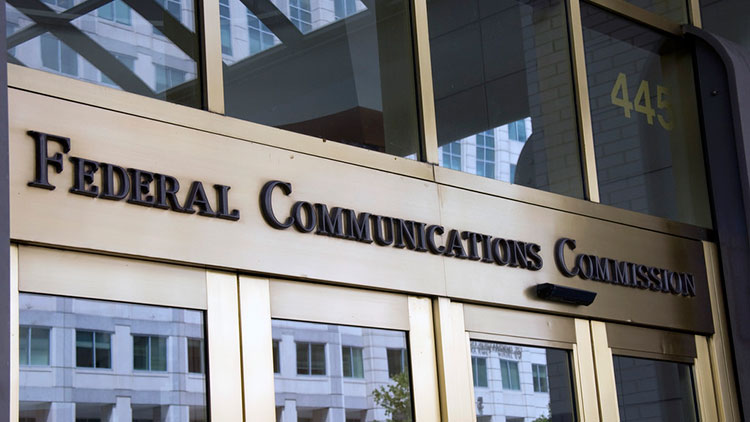FCC Approves Phone Privacy Clarification Order

The smarter way to stay on top of broadcasting and cable industry. Sign up below
You are now subscribed
Your newsletter sign-up was successful
The FCC has adopted the order clarifying that the rules on phone privacy are back in effect and dismissing as moot challenges to the telecom broadband privacy rules Congress nullified through a Congressional Review Act resolution.
The vote was unanimous but with commissioner Mignon Clyburn dissenting in part and with a lot to say about what she viewed as the remaining lack of clarity about broadband privacy protections.
FCC chairman Ajit Pai circulated the item earlier this month, which also reminds telecoms of their annual privacy compliance certification obligations.
The FCC went straight to an order rather than putting the item out for notice and comment, explaining that "because we are simply recognizing the effect of the resolution of disapproval, we find that notice and public procedure are unnecessary to reflect this action in the Code of Federal Regulations."
"Today, the Commission releases a ministerial Order to implement the Congressional resolution disapproving the Commission’s 2016 Privacy Order, which had amended the Commission’s rules implementing Section 222 of the Communications Act," said FCC chairman Ajit Pai. "Because Congress has invalidated the 2016 Privacy Order, we simply make clear that the privacy rules that were in effect prior to 2016 are once again effective."
The chairman said that while his plan was to have the Wireline Competition Bureau handle what he called a "ministerial act," Clyburn requested it be handled at the commission level with a vote.
Pai said he was "perplexed" by her decision to dissent in part, since he says she made no changes to the item. "When a Commissioner does not share her concerns about an item until after she casts her vote, it makes it difficult to work together to find common ground," he said.
The smarter way to stay on top of broadcasting and cable industry. Sign up below
In that dissent, Clyburn said that while she concurred with giving guidance in the context of phone service and putting legacy rules back on the books in an era when the chairman is taking a weed-whacker to rules to "the detriment" of regulatory certainty, she said simply dealing with phone privacy left a broadband privacy gap in the absence of the rules the CRA nullified, which she voted for.
She called it "facile and bull-headed" not to seek comment on how the proceeding was affected by the CRA nullification, the first time it had ever been used on FCC rules. "Second, and more importantly, this Order shows that the majority is committed to reversing Title II for broadband and that they are willing to leave broadband consumers without privacy protections while this work is ongoing," she said. "Even if we did not adopt rules, we could adopt enforcement guidance or a policy statement using the voluntary code of conduct on which broadband providers seeking reconsideration were willing to agree. But no, the Commission is not even doing that. We now simply have the bare text of section 222 for broadband, and decade-old rules for legacy voice," she added.
Pai has proposed reclassifying ISPs as information service providers, rather than telecoms, after which the Federal Trade Commission would reclaim its authority over broadband privacy, which it lost when ISPs were classified as common carriers in the 2015 Order. The FTC is prevented from enforcing regulations on common carriers.
In the meantime, it is not clear what the state of broadband privacy oversight is, though ISPs have pledged to protect sensitive customer information because it is in their interest to do so, though what should be defined as that sensitive personal information for purposes of collecting and sharing is one of the issues that divides the edge providers and some net privacy activist groups from ISPs.
The phone privacy rules the FCC is clarifying do refer to telecommunication service, under which ISPs are still classified under Title II. But the language is pretty phone-specific.
Contributing editor John Eggerton has been an editor and/or writer on media regulation, legislation and policy for over four decades, including covering the FCC, FTC, Congress, the major media trade associations, and the federal courts. In addition to Multichannel News and Broadcasting + Cable, his work has appeared in Radio World, TV Technology, TV Fax, This Week in Consumer Electronics, Variety and the Encyclopedia Britannica.

